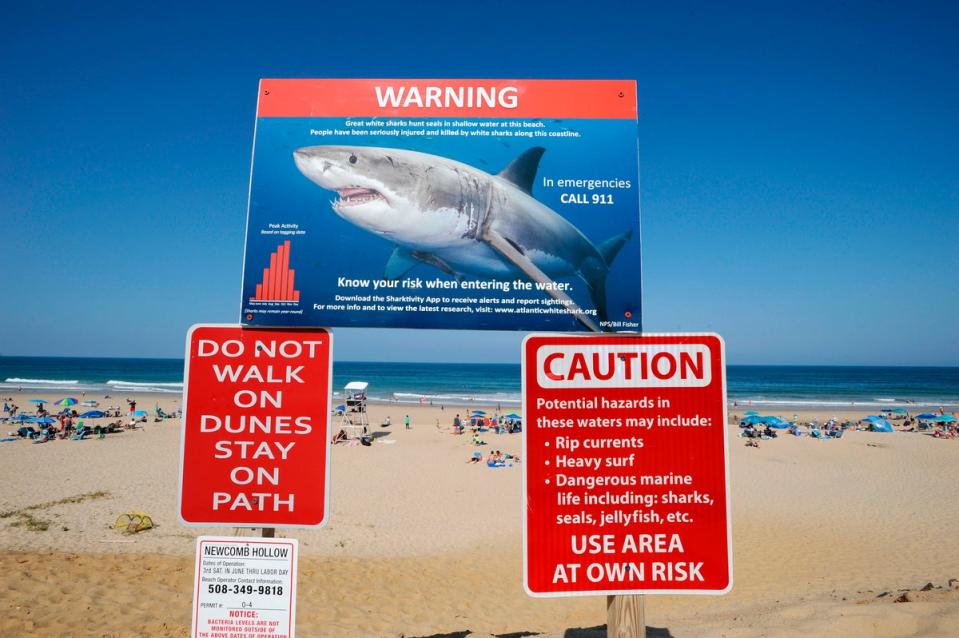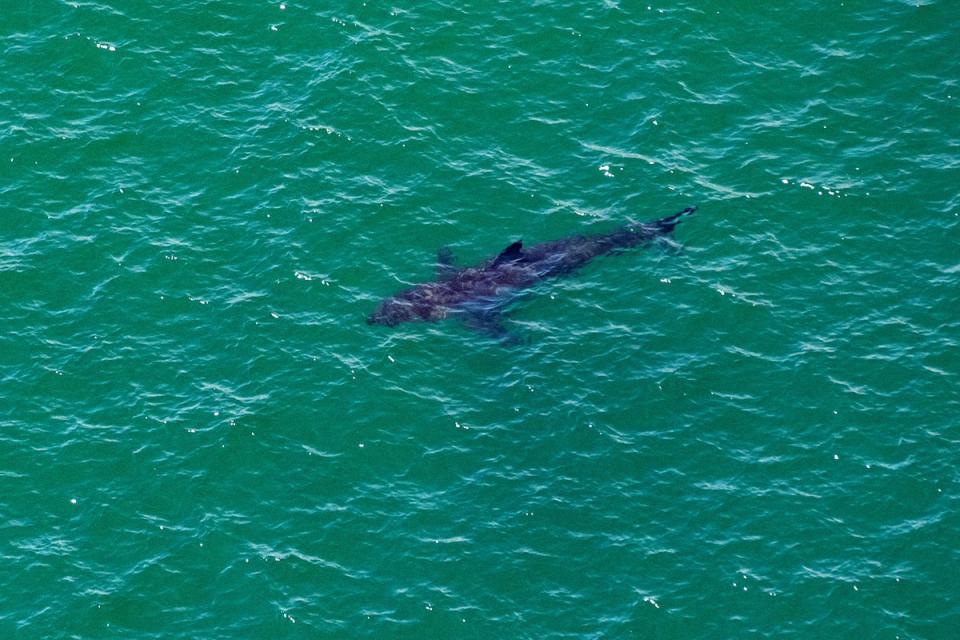Deadly shark attacks double with ‘disproportionate’ number in one country
The number of fatal shark attacks globally in 2023 hit an “unnerving” spike, according to a new report.
The Florida Program for Shark Research’s International Shark Attack File (ISAF) has released its annual report documenting all reported shark bites across the world. Throughout the year, the ISAF recorded 69 unprovoked shark attacks , with the United States leading the world in unprovoked shark bites at 36 in 2023.
The report also recorded 22 provoked bites, which the authors defined as instances in which humans first initiate contact with the shark, such as by divers trying to touch sharks or people attempting to feed sharks.
The number of attacks is consistent with trends over the last five years, but ten of those attacks were fatal, “considerably higher” than the five fatalities recorded in 2022, according to the report.
“This is within the range of the normal number of bites, though the fatalities are a bit unnerving this year,” Gavin Naylor, director of the Florida Program for Shark Research with the Florida Museum of Natural History, said in a statement.

The ISAF said a “disproportionate” number were in Australia, which had four of the 10 fatalities, despite accounting for only 22 per cent of bites. Another two were in the US, according to the report. New Caledonia, Egypt, the Bahamas and Mexico all recorded one fatality each. White sharks proved to be the most dangerous last year, causing nearly half of the fatalities, according to the report.
While the risk of suffering a shark bite is still “extremely low” according to the report, experts with the ISAF warned that beachgoers should still take precautions.
Recent shark attacks make worldwide headlines
Shark bites last year resulted in life-altering injuries for several people.
Last September, a shark attacked a woman while she was swimming in the Red Sea off the coast of Egypt. She lost her left arm as a result.
A 65-year-old New York City woman also needed at least five surgeries and had severely limited mobility in the aftermath of a devastating shark attack last August. The shark bit Tatyana Koltunyuk’s left leg while she was swimming off the coast of New York’s Rockaway Beach. The incident marked New York’s most serious shark attack since the 1950s, Dr Naylor told the Associated Press at the time.
With fatalities spiking in 2023, several deadly shark attacks also made headlines.
In December 2023, a shark killed 44-year-old Lauren Erickson Van Wart of Boston, Massachusetts while she was vacationing in the Bahamas. Police said at the time she was paddleboarding 3/4 miles out from the shoreline with a relative when the shark struck.

That same month, a shark killed a 15-year-old boy off the coast of South Australia. Khai Cowley was surfing with his father when a great white shark attacked. Emergency services were unable to revive him on the shore. In May 2023, another teenager was killed by a bull shark in a river in Perth, Australia.
And just one month into 2024, multiple shark attacks have already been reported.
Last month, a shark bit a ten-year-old boy’s leg while the child was participating in an expedition in a “Shark Tank” while on vacation in the Bahamas, authorities said at the time. The boy was taken to a nearby hospital to treat his injuries. Days prior, a shark had also attacked a 64-year-old man surfing off the coast of Australia.
Then, just last week, a vet saved a woman’s life after a bull shark attacked her in Syndey Harbour. Fiona Cargo was the first on the scene after hearing the woman’s cries for help and applied a tourniquet to keep her stable until medics arrived.
What can beachgoers do to stay safe?
While the total number of unprovoked shark bites remains “extremely low,” according to the report, beachgoers should still take precautions to keep themselves safe.
Surfers should be especially aware of shark safety, as 42 per cent of attacks were related to surfing and board sports, according to the report.
Experts with the Florida Program for Shark Research recommend always entering the water in groups, as sharks are more likely to attack a lone individual. They also recommend staying close to shore to ensure rescue crews have easy access and to stay out of waters during sharks’ normal feeding hours — that is, during the evening, dawn and dusk.


